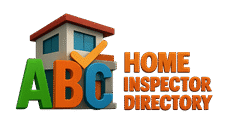Noma Home Inspector
A Tiny Panhandle Town with Affordable Homes and Quiet Rural Living
Noma is a small incorporated town in northern Holmes County, located just south of the Alabama border. With a 2020 population of 208 and a 2023 estimate around 254, Noma offers a tight-knit, low-density setting with modest residential development.
Housing in Noma consists primarily of small, single-family homes and manufactured or modular residences on generous lots. The local median home value is very affordable—around $48,800, with average values closer to $78,000 and reports showing neighborhood sales up to nearly $166,000 in select cases. Most residents own their homes, with owner-occupancy rates near 74%.
Household income is modest—the median sits at about $44,333 per year and per capita income around $24,350—with deeper pockets of need: nearly 25% of residents live below the poverty line. Average household size is about 2.5 people.
In this low-municipal landscape, licensed home inspections play a crucial role. Inspectors frequently evaluate older roofs, aging HVAC and electrical systems, outdated plumbing, termite or pest damage, moisture intrusion, foundation settling, and the functionality of private wells or septic systems. Many homes may also require wind mitigation and 4-point inspections for insurance purposes.
At ABC Home Inspector Directory, we connect buyers, sellers, and real estate professionals in Noma with certified local inspectors who understand Holmes County’s rural housing stock. Whether you’re evaluating a fixer-upper, small modular home, or acreage parcel, a thorough inspection provides clarity and confidence for informed decision-making.
Key Residential Features in Noma, FL:
- Tiny town (~208–254 residents) nestled near Alabama border
- Highly affordable housing: median home value around $48,800; average values ~$78K–$166K
- Owner-occupied properties dominating, modest household incomes (~$44K median)
- Homes generally older and constructed simply, often using private well/septic services
- Inspection priorities include roofs, mechanical systems, moisture or termite risk, and insurance-related checks
